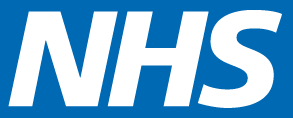Patient Safety Support and Resources
 Patient safety during COVID-19
Patient safety during COVID-19
Patient Safety Collaboratives and the Academic Health Science Networks which host them, are supporting their local health and care systems during the response to the COVID-19 outbreak in hospitals, care homes and the community.
Patient Safety Collaboratives, as part of the NHS National Patient Safety Improvement Programmes (NatPatSIPs), will focus on the following priorities over the next six months:
- Identifying and managing people at risk of deterioration and sepsis
- Implementing a tracheostomy care programme to help manage patients with a tracheostomy
- Support for maternity and neonatal units
- Support and guidance for care homes
More information and resources for each of these priorities will be shown below as they become available, as well as other resources that may be helpful.
Supporting COVID Oximetry @home and COVID Virtual Wards
As part of the COVID-19 response, two national projects have been launched: COVID Oximetry@home in November and COVID Virtual wards in January.
Both projects aim to provide extra support for patients suffering from COVID-19 to enable them to be safety cared for in their own homes.
NEWS2
The National Early Warning Score is used across all sectors of care to help identify deterioration in patients.
You can find out more information from the following videos:
- NEWS: What is it?
- Calculating and recording a NEWS score
- COVID-19: Patient Assessment the role of physiology and oximetry webinar
Further resources can be found here.
Recognising deterioration
There are a number of tools available to help recognise the signs of deterioration including:
- Soft signs of deterioration
- Introduction to serious illness for carers
- Preventing the spread of infection
- Measuring the respiratory rate
- Measuring oxygen saturation
- Measuring blood pressure
- Measuring level of alertness
- Structured communication and escalation
- Treatment escalation plans and resuscitation
- Recognising deterioration with a learning disability
Softer Signs Tools
Softer signs tools are designed to help anyone caring for someone to spot when they start to become unwell, you don’t need any clinical training to use them although the prompts are based on physiology.
There are a number of evidence based tools that can be used such as ‘Stop & Watch’, ‘Significant Care’ and RESTORE 2
RESTORE2
RESTORE2 uses three tools (Soft Signs, NEWS2 and SBARD), which when used in unison, create a robust process for early identification of the signs of deterioration and appropriate and timely escalating in care homes.
You can find out more about RESTORE2 and the soft signs of physical deterioration in this Powerpoint Presentation.
There is also a training guide for staff working in care home
We continue to offer support to our Maternity & Neonatal Units, linking in with other regional partners and Trusts. We are currently focusing on capturing and sharing learning that will help guide our work now and as we move forward.
Fore more information please visit the Maternal and Neonatal Safety Improvement Programme website.
A new online package is available to support NHS staff and healthcare students with psychological wellbeing during and after the COVID-19 pandemic. The package has been developed by Dr Holly Blake from the University of Nottingham, in collaboration with the University of Leicester. It contains information, advice and tips on:
- Psychologically safe work environments
- Communication
- Social stigma
- Accessing social support
- Self-care strategies
- Rest, shift work, fatigue and sleep
- Managing emotions during the pandemic
During COVID-19, care providers are using digital technology to protect the health and wellbeing of vulnerable residents.
Examples include video consultations with health professionals, ordering prescriptions, and supporting residents to talk with loved ones. NHSX and NHS Digital have negotiated and published a range of internet connection offers with telecom companies on the NHSX website.
This is complemented by two new pieces of guidance: choosing an internet connection for your care home and how to use digital services in your care home.
Further resources
National Wound Care Strategy programme
Wounds like leg-ulcers and surgical incisions can be looked after in a different way to traditional nursing care. By sharing the wound care strategy with healthcare professionals, patients can be supported to improve their own quality of life, stay safe through reduced contact with others and reduce pressure on the NHS. The National Wound Care Strategy Programme has created and collected resources to help patients, carers and professionals to work in partnership on managing wounds during the COVID-19 pandemic.
Please visit the AHSN Network website to find out more.
We will continually review and update this page when we have more COVID-19 updates to share.
West Yorkshire and Harrogate ICS Advanced Care Planning for people affected by Dementia.
West Yorkshire and Harrogate Health and Care Partnership (WYH HCP) is one of three national dementia pilot sites exploring what work can be done collectively across an ICS area to reduce non-essential hospital admissions for people living with dementia.
You can find out more about this work and access resources here.
For more information please contact us.
